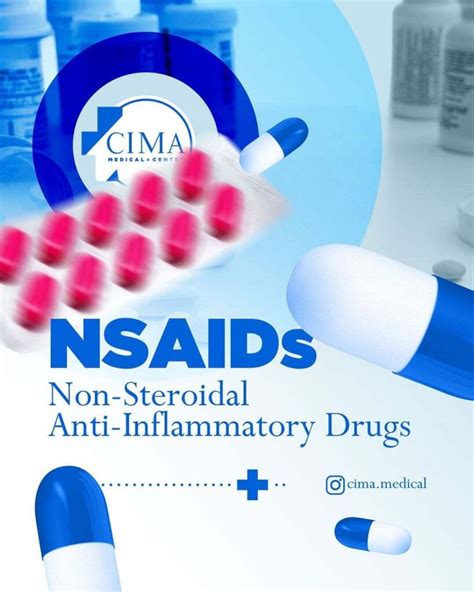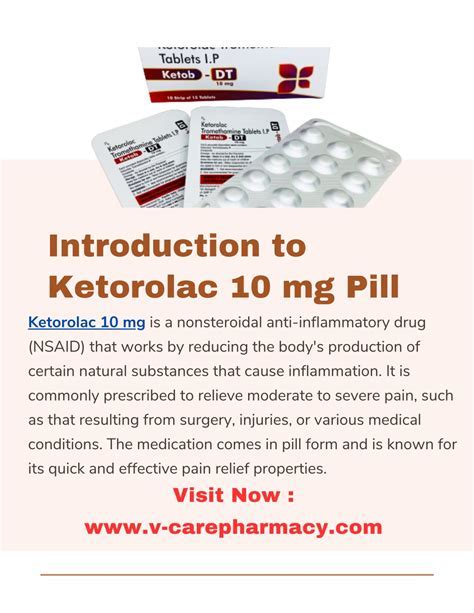Intro
Discover anti-inflammatory meds for relief from pain and swelling. Learn about NSAIDs, corticosteroids, and natural alternatives for effective inflammation reduction and chronic pain management.
The quest for relief from inflammation and pain has been a longstanding concern for individuals worldwide. Inflammation, a natural response of the body's immune system, can sometimes become a chronic condition, leading to discomfort, disability, and a diminished quality of life. The development and use of anti-inflammatory medications have been a significant advancement in managing such conditions, offering hope and relief to millions. Understanding the role, types, and implications of anti-inflammatory meds is crucial for both healthcare providers and patients seeking to navigate the complex landscape of inflammation management.
Inflammation is not merely a symptom but a complex biological response to harmful stimuli, such as pathogens, damaged cells, or irritants. It involves the immune system, blood vessels, and molecular mediators. The purpose of inflammation is to eliminate the initial cause of cell injury, clear out necrotic cells and tissues damaged from the original insult and the inflammatory process, and to initiate tissue repair. However, when this process becomes chronic or dysregulated, it can lead to a myriad of diseases, including arthritis, diabetes, cardiovascular diseases, and even cancer. The management of inflammation, therefore, is a critical aspect of treating these conditions and improving patient outcomes.
The use of anti-inflammatory medications is a cornerstone in the management of inflammatory diseases. These medications work by either blocking the production of pro-inflammatory chemicals or reducing the body's immune response. Over-the-counter (OTC) options like nonsteroidal anti-inflammatory drugs (NSAIDs) are commonly used for their analgesic, antipyretic, and anti-inflammatory effects. Prescription medications, including corticosteroids and disease-modifying antirheumatic drugs (DMARDs), offer more potent alternatives for severe or chronic conditions. Biologics, a newer class of drugs, target specific molecules involved in the inflammatory process, providing effective relief for conditions like rheumatoid arthritis and psoriasis.
Understanding Anti-Inflammatory Medications

Anti-inflammatory medications are broadly classified into several categories, each with its mechanism of action, benefits, and potential side effects. NSAIDs, for instance, inhibit the enzyme cyclooxygenase (COX), which is involved in the production of prostaglandins, key players in the inflammatory process. Corticosteroids, on the other hand, mimic the effects of the hormone cortisol, suppressing the immune system and reducing inflammation. Biologics, the most recent addition to the arsenal against inflammation, are engineered to target specific components of the immune response, offering a more tailored approach to treating inflammatory diseases.
Benefits of Anti-Inflammatory Medications
The benefits of anti-inflammatory medications are multifaceted. They not only provide relief from pain and inflammation but also can prevent long-term damage to joints and tissues, improve function, and enhance the quality of life for individuals with chronic inflammatory conditions. For example, in the management of rheumatoid arthritis, early intervention with DMARDs can significantly reduce the risk of joint deformities and disability. Similarly, biologics have revolutionized the treatment of psoriasis, offering patients the possibility of achieving complete skin clearance, a goal that was previously unattainable with traditional treatments.Working Mechanisms of Anti-Inflammatory Meds

Understanding the working mechanisms of anti-inflammatory medications is essential for their effective use. Each class of drugs has a unique mode of action. For instance, NSAIDs work by inhibiting the COX enzymes, thus reducing the production of prostaglandins, which are key mediators of inflammation and pain. Corticosteroids, being potent anti-inflammatory agents, act by suppressing the immune system at multiple levels, thereby reducing inflammation. Biologics, with their targeted approach, can either block the action of pro-inflammatory cytokines or modulate the immune response, leading to a reduction in inflammation.
Steps to Use Anti-Inflammatory Meds Effectively
To use anti-inflammatory medications effectively, patients should follow a few key steps: - **Consult a Healthcare Provider**: It's crucial to consult with a healthcare provider to determine the best course of treatment. They can help identify the underlying cause of inflammation and recommend the most appropriate medication. - **Follow the Prescribed Dosage**: Adhering to the prescribed dosage is vital to ensure the medication's effectiveness and minimize potential side effects. - **Monitor for Side Effects**: Patients should be aware of potential side effects and monitor their condition closely. Reporting any concerns to a healthcare provider can help in adjusting the treatment plan if necessary. - **Combine with Lifestyle Changes**: For chronic inflammatory conditions, combining medication with lifestyle changes such as a balanced diet, regular exercise, and stress management can enhance the treatment's efficacy.Practical Examples and Statistical Data

The impact of anti-inflammatory medications can be seen in various statistical data and practical examples. For instance, studies have shown that the early use of biologics in rheumatoid arthritis can lead to significant improvements in disease activity and quality of life. Similarly, the use of NSAIDs in the management of acute pain has been shown to provide rapid relief, enabling individuals to return to their daily activities sooner. Statistical data also highlight the economic benefits of effective inflammation management, including reduced healthcare costs and improved productivity.
Common Uses of Anti-Inflammatory Meds
Anti-inflammatory medications have a wide range of applications, including: - **Arthritis Management**: For conditions like rheumatoid arthritis, osteoarthritis, and psoriatic arthritis. - **Pain Relief**: For acute and chronic pain management. - **Skin Conditions**: For diseases like psoriasis and eczema. - **Autoimmune Diseases**: Such as lupus and multiple sclerosis.SEO Optimization for Anti-Inflammatory Meds

Ensuring a keyword density of 1–2% without keyword stuffing is crucial for SEO optimization. Using synonyms and relevant phrases can diversify the language, making the content more accessible and improving its ranking on search engines. Short paragraphs and the use of bullet points or numbered lists can enhance readability, making the content more user-friendly.
Keyword Density and Synonyms
Maintaining the right keyword density involves using the target keywords (in this case, "anti-inflammatory meds") sufficiently throughout the content without overdoing it. Synonyms such as "anti-inflammatory medications," "inflammation relief," and "pain management drugs" can be used to add variety and improve SEO.Encouraging Engagement

As we conclude our exploration of anti-inflammatory medications, it's essential to encourage engagement and further discussion. We invite readers to share their experiences with anti-inflammatory meds, ask questions, or seek advice on managing inflammatory conditions. By fostering a community of individuals who are passionate about health and wellness, we can work together to promote better understanding and management of inflammation.
Call to Action
- Share this article with someone who might benefit from the information. - Comment below with your thoughts or questions about anti-inflammatory medications. - Explore other resources on inflammation management and health wellness.What are the common side effects of anti-inflammatory medications?
+Common side effects include gastrointestinal issues, increased risk of bleeding, and potential kidney and liver damage. It's essential to discuss potential side effects with a healthcare provider.
Can anti-inflammatory medications be used for chronic conditions?
+Yes, anti-inflammatory medications are often used in the management of chronic inflammatory conditions such as rheumatoid arthritis, psoriasis, and lupus. The goal is to reduce inflammation, prevent tissue damage, and improve quality of life.
How do biologics differ from traditional anti-inflammatory medications?
+Biologics are engineered to target specific components of the immune response, offering a more tailored approach to treating inflammatory diseases. They can be more effective for certain conditions and have a different side effect profile compared to traditional medications.
